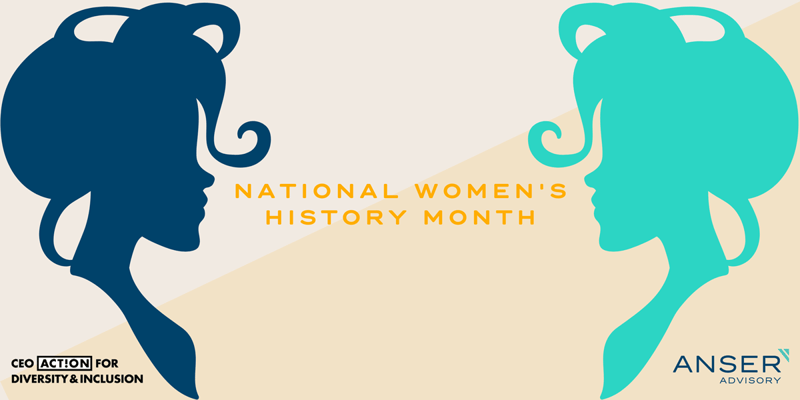Women have spent generations at the forefront of the fight for equity. As a CEOAction signatory, Anser is committed to honoring the vital role women around the world have played in progressing justice for all.
About National Women’s History Month
In the 1970’s, local groups began celebrating Women’s History Week. One of the most notable celebrations was organized in Santa Rosa, California, by the Education Task Force of the Sonoma County Commission on the Status of Women in 1978. In 1980, President Jimmy Carter designated the week of March 8 as National Women’s History Week. Congress expanded the celebration by declaring March as National Women’s History Month in 1987. This created a special opportunity in our schools, our workplaces, and our communities to recognize and celebrate the specific achievements women have made over the course of American history in a variety of fields. Each year the National Women’s History Alliance chooses a unifying theme to be shared with those who want to promote women’s history. Previous themes have included “Women Taking the Lead to Save Our Planet”(2009), “Celebrating Women in STEM” (2013),” Honoring Trailblazing Women in Labor and Business” (2017), and “Valiant Women of the Vote”(2020). Associated Recognitions: International Women’s Day has been celebrated by people around the World since 1910. The United Nations officially began sponsoring International Women’s Day on March 8 since 1975. It’s a day to celebrate and reflect on the contribution’s women have made and continue to inspire action for parity and advocate for women’s rights.
Self Reflection Questions:
- Who comes to mind when you think of trailblazing women in business? Who do you see as the leading female role models in your company?
- What are some potential obstacles specific to women entering the C-Suite? What are some ways organizations can address these challenges?
- Are our efforts as an organization supporting women of color? LGBTQ+? How can we deepen our commitment to include all women?
Resources:
National Women’s History Alliance, Why March is National Women’s History Month
Council on Foreign Relations, Growing Economies Through Gender Parity


